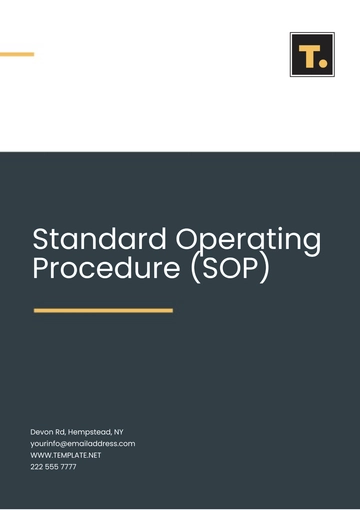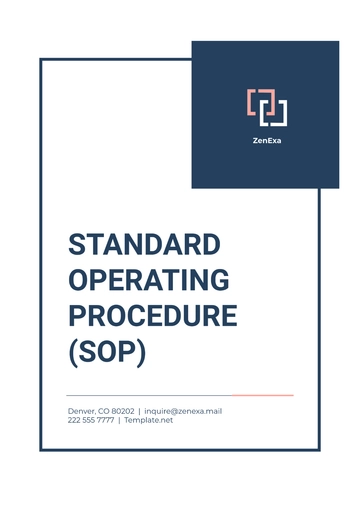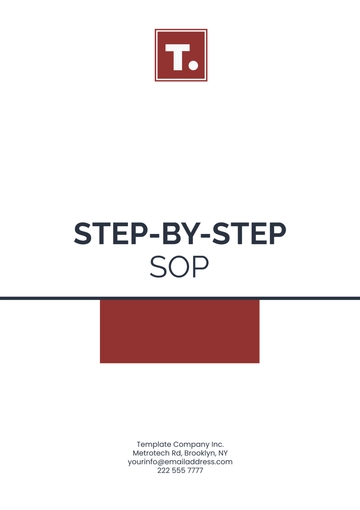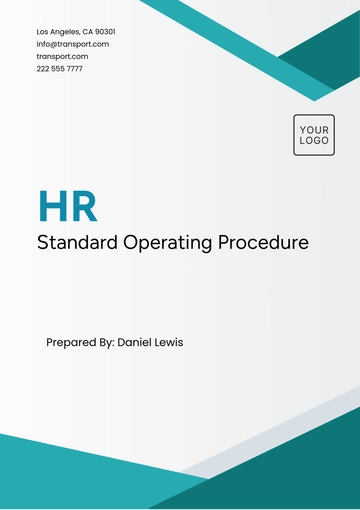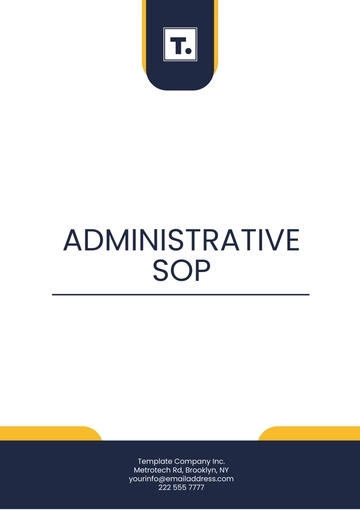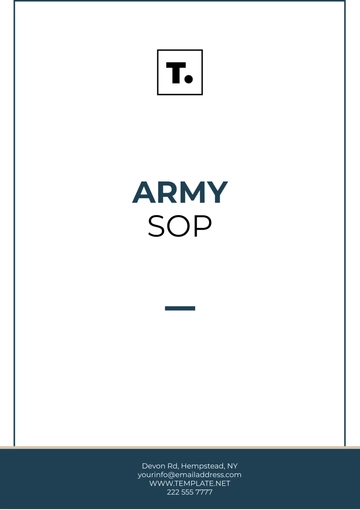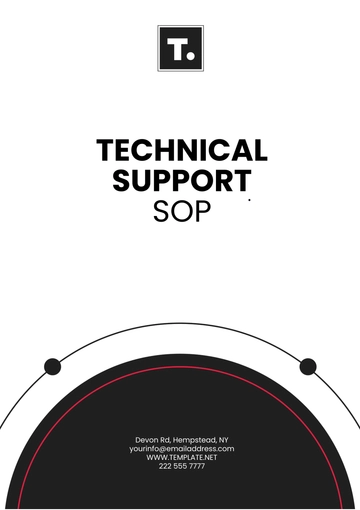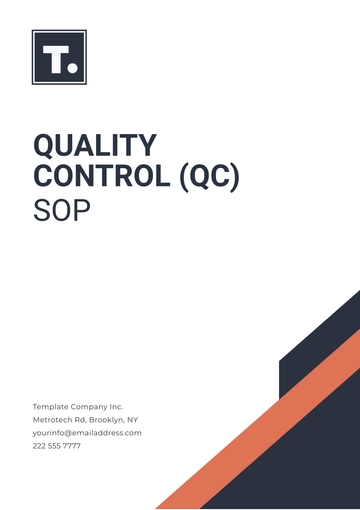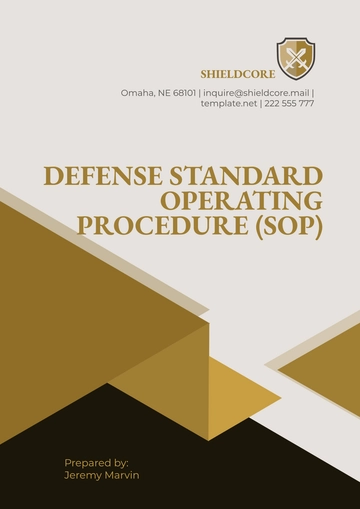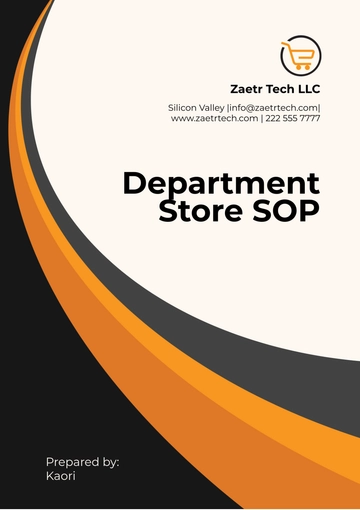Digital Marketing Standard Operating Procedure (SOP)
I. Introduction
A. Purpose
The purpose of this SOP is to provide guidelines and procedures for [Your Company Name]'s digital marketing activities. It outlines the steps to be followed to ensure effective digital marketing campaigns and consistent brand messaging across online platforms.
B. Scope
This SOP applies to all members of the [Your Department] involved in digital marketing activities, including but not limited to social media management, email marketing, content creation, and search engine optimization (SEO).
II. Digital Marketing Strategy Development
A. Objective Setting
1. Identify and define clear objectives for digital marketing campaigns, such as increasing brand awareness, driving website traffic, or generating leads.
2. Ensure that objectives are specific, measurable, achievable, relevant, and time-bound (SMART).
B. Target Audience Identification
1. Research and analyze the target audience demographics, behaviors, and preferences.
2. Create detailed buyer personas to better understand the needs and interests of the target audience.
C. Competitive Analysis
1. Identify key competitors in the industry.
Analyze competitor strategies, strengths, and weaknesses to identify opportunities for differentiation.
III. Content Creation and Distribution
A. Content Calendar Creation
Develop a content calendar outlining the topics, formats, and publishing schedule for digital content.
Ensure alignment with the overall digital marketing strategy and target audience preferences.
B. Content Creation
Develop high-quality content, including blog posts, articles, infographics, videos, and social media posts.
Follow brand guidelines and maintain consistency in tone, style, and messaging across all content.
C. Content Distribution
1. Utilize various online platforms, including social media, email newsletters, and website blogs, to distribute content.
2. Optimize content for search engines to improve visibility and reach.
IV. Social Media Management
A. Platform Selection
Identify the most relevant social media platforms for reaching the target audience.
Consider factors such as demographics, engagement levels, and platform features.
B. Posting Schedule
Determine the optimal times and frequencies for posting on each social media platform.
Schedule posts in advance using social media management tools to ensure consistency and efficiency.
C. Engagement and Community Management
Monitor social media channels for comments, messages, and mentions.
Respond promptly to inquiries, comments, and complaints professionally and courteously.
V. Performance Monitoring and Analysis
A. Key Performance Indicators (KPIs)
Define relevant KPIs to measure the success of digital marketing efforts, such as website traffic, conversion rates, and social media engagement.
Track KPIs regularly and adjust strategies as needed based on performance data.
B. Analytics Tools
Utilize analytics tools such as Google Analytics, social media insights, and email marketing platforms to gather data.
Generate reports and analyze metrics to identify trends, insights, and areas for improvement.
VI. Continuous Improvement
A. Regular Review
Conduct regular reviews of digital marketing strategies and tactics.
Solicit feedback from team members and stakeholders to identify areas for improvement.
B. Experimentation and Innovation
Encourage a culture of experimentation and innovation within the digital marketing team.
Test new ideas, tactics, and technologies to stay ahead of industry trends and competitors.
VII. Approval and Revision History
A. Approval
1. This SOP was approved by:

[Your Name]
[Your Position]
[Approval Date]
2. Any revisions to this SOP must be approved by:

[Your Name]
[Your Position]
B. Revision History
Revision Number | Description | Effective Date |
|---|
1.0 | Initial version | [Effective Date] |
1.1 | Updated social media section | [Effective Date] |
1.2 | Added performance monitoring | [Effective Date] |
VIII. References
A. List any references or resources used in developing this SOP, such as industry reports, best practices guides, or internal documents.
IX. Appendices
A. Include any additional supporting documents or templates relevant to digital marketing activities, such as content calendars, social media guidelines, or performance dashboards.
Standard Operating Procedures Templates @ Template.net



